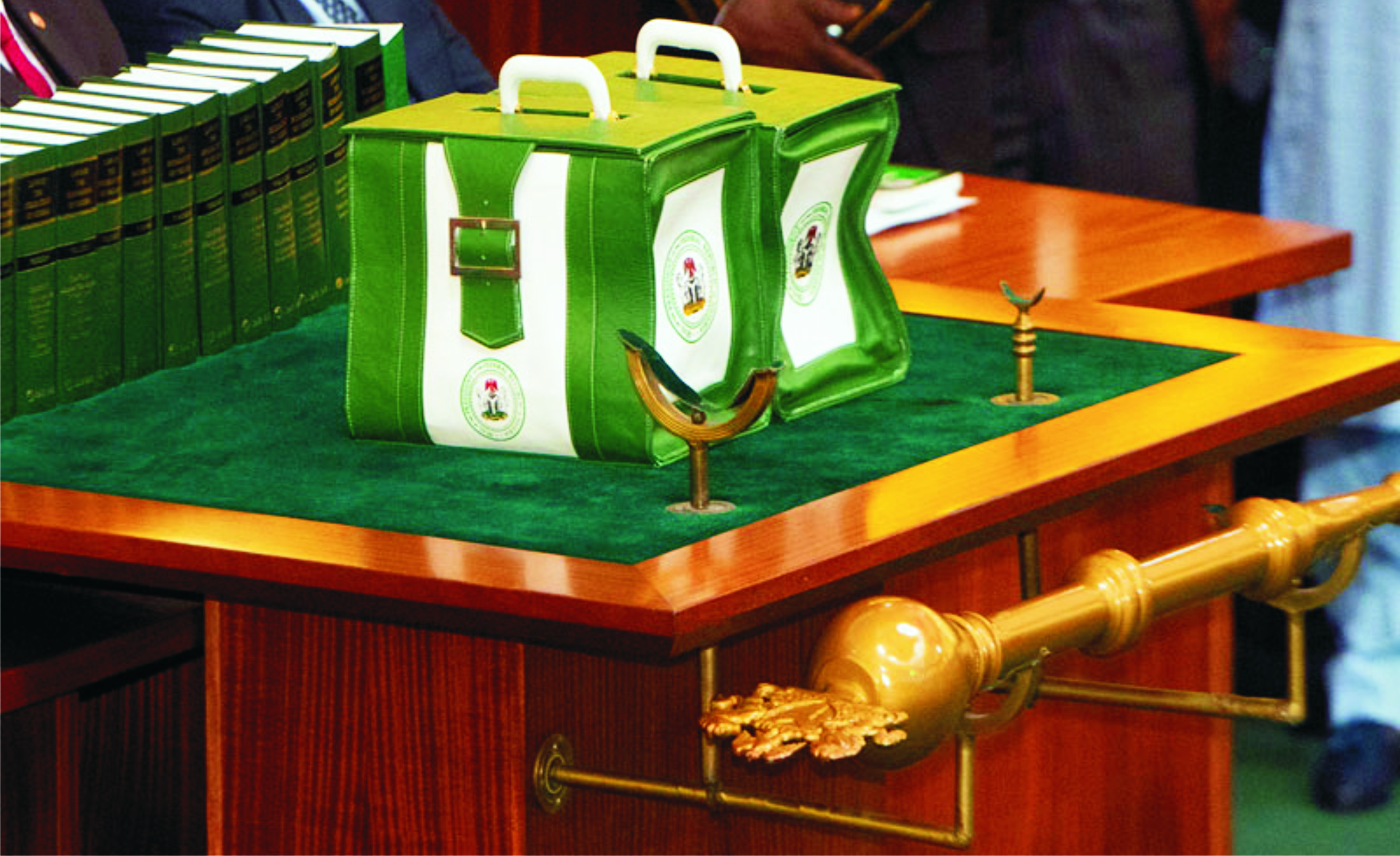Business
Coronavirus: FG Moves To Cut Down 2020 Budget

President Muhammadu Buhari yesterday constituted a committee to assess the impact of the Corona virus outbreak on Nigeria’s economy with a view to cutting down the size of the 2020 budget and reduce the 75 dollars oil benchmark.
The Minister of Finance, Budget and National Planning, Hajiya Zainab Ahmed, announced this while addressing State House correspondents after a closed door meeting with the President at the Presidential Villa, Abuja.
President Buhari had in December 2019 signed the 2020 budget of N8.83 trillion into law.
The budget, tagged; “Budget of Sustaining Growth and Job Creation”, which key assumptions and parameters were based on crude oil production of 2.18 mbpd while the benchmark oil price was 57 dollars.
The budget assumed a deficit of 1.52 percent of the estimated gross domestic product – representing around 2.18 trillion naira – to be financed through foreign and domestic borrowing.
However, the minister revealed that the committee, which will revisit the crude oil benchmark and lower the price, is expected to submit its report to the President by March 11.
She said: “We just met with the President to discuss the matter of the impact of the Coronavirus on our economy and Mr President has formed us into a committee, with the Minister of State, Petroleum Resources, the Central Bank Governor, the GMD NNPC and myself as members.
”Our mandate is to make a quick assessment of the impact of this Coronavirus on the economy, especially as it affects the crude oil price.
”We will be writing a report and brief Mr President tomorrow or Wednesday morning and after that we’ll also have more substantial information for the press.
”But it is very clear that we will have to revisit the crude oil benchmark price that we have of $57 per barrel, we have to revisit it and lower the price. Where it will be lowered to is the subject of the work of this committee.
“What the impact will be on that is that there will be reduced revenue to the budget and it will mean cutting the size of the budget. The quantum of the cut is what we are supposed to assess as a committee.’’
The Minister of State, Petroleum Resources, Mr Timipre Sylva, who also fielded questions from the correspondents, said in the coming days, when all oil producing nations begin to see the effect of the reduction of oil prices, OPEC might meet again and reconsider its position on cutting production.
On the issue of engaging Russia, Sylva said: ”We as a member of OPEC are not in a position to take that engagement on our own unilaterally.
”There was a disagreement between OPEC and OPEC+, it’s not just Russia, but the biggest producers within OPEC and OPEC+ are Saudi Arabia and Russia.
”We believe that in the coming days when all of us would have begun to see effect of the reduction of prices, OPEC and OPEC+ might need to meet again and reconsider our positions.
”Meanwhile, we expect also that a lot of discussions are going on at the level of Saudi Arabia and Russia, but as Nigeria, we are not in a position to begin to engage members on this matter.’
Business
Bayelsa Begins EIA On 60MW Power Plant

The Bayelsa Electricity Company Ltd, in collaboration with the Federal Ministry of Environment, on Friday, commenced the Environmental Impact Assessment (EIA) for the proposed 60-megawatt (MW) power plant.
The Tide’s source reports that the power plant project, led by the Bayelsa State Government, is in Elebele, on the outskirts of Yenagoa, the state capital.
The source also reports that the State Governor, Douye Diri, had announced plans to establish an independent power project to end the state’s reliance on the national grid and provide an uninterrupted power supply across Bayelsa.
The Director of Operations at the Bayelsa Electricity Company Ltd., Steve Bubagha Jnr., conducted the Minister of Environment, Balarabe Lawal, and his team around the project site.
Mr. Bubagha explained that the company planned to install a 60MW “plug and play” gas-fired turbine that would receive gas feed from the Oando gas manifold in Elebele.
He said the land area for the project is approximately 5.8 hectares, with 2.1 hectares currently being used.
“The Independent Power Plant is officially known as the ‘Yenagoa Power Project. This is a ‘Plug and Play’ Gas Turbine.
“What we mean by ‘plug and play’ is that the turbine is already set to be installed upon arrival from the manufacturers.
“We are only working on other components, so the turbine should be running in less than two years, or at most, in two years”, Bubagha explained.
Following the site visit, the environment minister, represented by Adimchinobi Okereke, emphasised that the purpose of the visit was to ensure the EIA process adhered to standard guidelines before granting final approval to the project.
He lauded the state government for initiating the project, noting that once completed, it would benefit Bayelsa and contribute to solving Nigeria’s power supply challenges.
Azibola Inegite, a professor and Dean of the Faculty of Science at Niger Delta University, and the EIA consultant for the project, assured that international best practices would be followed in conducting the EIA.
He emphasised that the EIA was essential for the successful execution of impactful land and environment-related projects.
On his part, the technical adviser on Print Media/Public Affairs to Governor Diri, Wisdom Ikuli, commended the Governor for his vision in executing the project.
He stated that the 60MW power plant would help reduce the state’s frequent power outages and boost business growth, thereby accelerating industrialisation.
A key part of the minister’s visit was the “Stakeholders Engagement Scoping Workshop for Environmental Impact Assessment of Proposed Gas Powered Plant and Gas Delivery Pipeline in Bayelsa State”.
The workshop brought together stakeholders from Elebele, whoch include the host community, and Kpansia, an impacted community in Yenagoa Local Government Area.
Business
Firm Unveils Solutions To Oil Logistics Challenges

A firm, Fortune Global Shipping and Logistics Limited, said it has concluded plans to unveil an excellent and cost-effective logistics solution for oil and gas logistics, project cargo, customs clearance, consolidation, and construction, among others, in Lagos State.
Announcing this in a statement on Friday, the company said the initiative would be unveiled during the 2025 Sub-Saharan Africa International Petroleum Exhibition and Conference.
It stated that the event is billed to take place in Lagos this week.
SAIPEC is an annual global event which focuses on harnessing a sustainable African energy industry through partnerships.
Fortune Global explained that the exhibition promises to engage with other key industry stakeholders, decision-makers, and experts across Sub-Saharan Africa’s energy supply and value chain.
“We invite you to experience more and find out about Fortune Global’s latest innovations in oil and gas logistics. Connect with Fortune Global Shipping and Logistics Limited at the Exhibition Booth N21, Eko Convention Centre, in Lagos”, the statement stated.
Business
Nigeria, Still Africa’s Largest Economy – World Bank

Nigeria remains the largest economy in Africa going by Gross Domestic Product (GDP), in spite of the challenges faced by yhe country’s private sector.
World Bank’s Country Director for Nigeria, Dr. Ndiame Diop, who confirmed this at the Country Private Sector Diagnostic (CPSD) and Stakeholder Engagement in Abuja, Friday, said while Nigeria receives far less Foreign Direct Investment (FDI) than its potential warrants, especially in comparison to countries like Indonesia and South Africa, it continues to hold its position as Africa’s biggest economy.
He said the CPSD report, set to be released in the coming weeks, will reveal the impact of private sector constraints on economic growth.
Diop noted that if targeted actions were taken to remove these obstacles, Nigeria’s economic potential would be significantly enhanced.
He explained that the current macroeconomic reforms have created a favourable environment for such changes.
He cited the country’s recent economic stabilization measures, particularly exchange rate market adjustments and improved access to foreign exchange, as critical steps that have already enhanced investment conditions.
The Country Director outlined four key sectors where strategic reforms could unlock massive investment and job creation.
He stayed that in the Information Communication Technology (ICT) sector, investment opportunities worth up to $4 billion could be realized, potentially creating more than 200,000 jobs.
In agribusiness, reforms could unlock $6 billion in investment and generate over 275,000 jobs.
The solar photovoltaic (PV) industry holds the potential for $8.5 billion in investment and more than 129,000 jobs, while the pharmaceutical sector could attract $1.6 billion and create more than 30,000 to 40,000 jobs.
For the ICT sector, he identified the high, unpredictable, and inconsistent right-of-way fees, levies, and informal charges, comprising 30 to 70 per cent of broadband rollout costs, as a major barrier.
According to him, addressing these regulatory inconsistencies would be a game-changer for broadband expansion.
He acknowledged that the National Economic Council has recognized this issue and that progress is being made through a World Bank-supported initiative.
He also noted challenges such as vandalism, limited financing for rural broadband expansion, and the need for competitive access to wholesale fiber.
Dr. Diop further noted that efforts are underway in collaboration with government agencies to resolve these issues, and the World Bank, the International Finance Corporation (IFC), and private investors are prepared to support broadband infrastructure development.
On solar power, Diop described Nigeria’s energy sector as difficult but noted that renewable energy access, particularly solar PV, has been a bright spot.
He explained that private sector investment in renewable energy has historically been hindered by high costs and unviable tariffs.
However, blended finance mechanisms supported by the World Bank and IFC have helped bridge this gap, making off-grid solutions more viable.
He noted the DES project, which aims to connect 17.5 million households and businesses to solar power, as evidence of growing private sector interest.
While the solar industry is expanding, he stressed that reforms to improve Nigeria’s grid electricity supply remain crucial for industrialization.
On her part, the Regional Director for Central Africa and Anglophone West Africa at the IFC, Dr. Dahlia Khalifa, stressed the importance of consistency in regulatory policies, particularly in customs duties and revenue agency fees.
She noted that unpredictability discourages private sector investment, as businesses rely on stable regulatory environments for strategic planning.
-

 Maritime3 days ago
Maritime3 days agoNigerian Customs Personnel And Smuggling Curtailment
-

 Business3 days ago
Business3 days agoBayelsa Begins EIA On 60MW Power Plant
-

 Rivers3 days ago
Rivers3 days agoOgonis Endorse Dialogue On Oil Extraction Resumption
-

 Sports3 days ago
Sports3 days agoFA Cup: Minnows Stun Liverpool, End Dream
-

 News3 days ago
News3 days agoJail Break: NSCDC Deploys More Armed Officers To Custodial Centres
-

 Politics3 days ago
Politics3 days agoProbe My Father With Clean Intent, El-Rufai’s Son Tells Kaduna Govt
-
Maritime3 days ago
NRC, APMT Plan Cargo Movement Expansion From Apapa To Ibadan
-

 Sports3 days ago
Sports3 days agoEdo Inaugurates Committee For Edo Sport Festival

